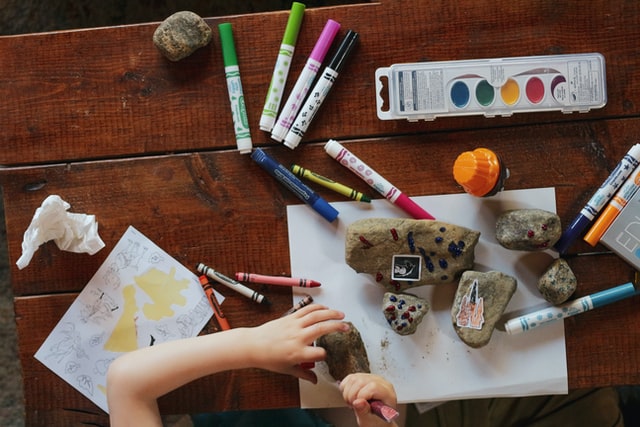All opinions are mine and mine alone.
Types Of Play That Are Vital To Your Child’s Development
The world is fast becoming aware of just how important play is to a child’s development. Finally, we’ve started waking up to the fact that too little time for play can be damaging. Even pediatricians recommend playing as one of the vital components to healthy brain development. And along with the realization of how important play is in early development, we are also now conscious of the various types of play and how each is relevant to other areas of development. For example, kickball is not at all suitable for a tiny tot that’s just learning to walk for a few minutes without toppling over. However, several types of play are ideal for different ages. Parents should have a somewhat clear idea of the types of play and how to implement and encourage them. So, in this article, we focus on the different kinds of play that are vital to toddlers and younger children.

Unoccupied Play
Unoccupied play is one of the more underrated kinds, although it’s just as vital as others. This type of play is the infancy of the category; your young tot needs to play without any intervention at all.
This primary type of play is fundamental to your child’s growth. When your baby is just a few months old, you can start leaving them to play unoccupied, with, or without toys. But with that said, always be sure only to provide your child with soft, age-suitable toys when allowing unoccupied play. Texture toys and child-friendly household objects are suitable. Classroom carpets and playmats are an excellent choice for all parents. These interactive carpets typically have educational elements and bright colors that tiny tots will love. It’s a great idea to decorate your child’s play area with a seating carpet that will brighten up the space and encourage your little one’s curiosity.
Solitary Play
Solitary play is similar to unoccupied play, although it’s relevant when children begin playing more attentively without reference to other children that might also be within the environment. This stage of play is particularly intriguing for most parents, as children will prefer to play on their own without interacting with other youngsters. It’s equally as important to encourage this type of play and avoid interfering by promoting your child into social interactions that they are not yet ready for just yet. The best toys to encourage this type of play are age-appropriate books and playsets such as train sets, kitchen sets, or others that interest your child.
Parallel Play
Parallel play is yet another intriguing form of play for tiny tots. You will notice that your little one prefers to play alongside another child without actually interacting, even though they can even share the same toys. Because learning to play is the process of learning how to relate to others, children go through several phases before they begin interacting socially with other children. The most suitable toys to use when encouraging parallel play are toys that can be shared easily. These toys will include stacking and sorting blocks, sticker books, and others. Consider toys that won’t cause children conflict.
Associative Play
In associative play, your little one will start learning to play with others, although they will not be aware of any playing goals. This kind of play will begin at age three when your child develops a longer attention span. Turn-taking and sharing are commonly exhibited in this type of play.
Cooperative Play
When your child starts to learn cooperative play, the other types of play will not instantly diminish, and most will remain important for several years to come. With that said, cooperative play forms the groundwork for teamwork, as children play with a common goal in mind. The best toys for this type of play are interactive toys that can be shared and sporting items. Knowing the types of play is a great way to encourage your child in each area and ensure they are achieving their milestones. Play is crucial for social development and so much more.
There are so many fun games to play with your toddler, and even though most games are age-relevant, there will always be tons of options as your child grows. Playing together also serves as vital bonding time, and this can make a massive difference to how well a child develops. Investing in toys and devoting time towards doing activities with or alongside your child can make a world of difference to their development.



Speak Your Mind